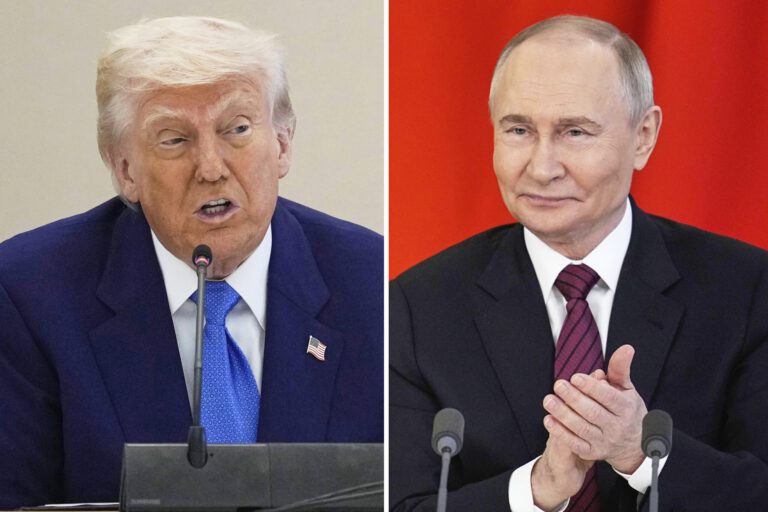Tensions Escalate as Trump Expresses Discontent with Putin Over Ukraine Conflict
Introduction
In a recent phone call, former President Donald Trump voiced his dissatisfaction with Russian President Vladimir Putin regarding the ongoing war in Ukraine. The conversation aimed at jumpstarting stalled peace efforts but coincided with one of the deadliest assaults on the Ukrainian capital, Kyiv, since the conflict began.
Key Details from the Trump-Putin Call
- Date of Call: Thursday
- Duration: Extended discussion covering various global issues, particularly the war in Ukraine.
- Trump’s Sentiment: Trump expressed frustration, stating he did not make any progress in terms of peace negotiations. “I’m not happy about that,” he declared, emphasizing the lack of resolution.
Immediate Consequences of the Call
Just hours after the conversation, Ukraine faced a barrage of drone and missile strikes from Russia. This attack resulted in:
- Casualties: At least one death and many injuries, including a child.
- Location: Primarily targeted Kyiv, highlighting ongoing security concerns.
According to reports from the Associated Press, this wave of assaults marks an escalation in the conflict, following previous aerial strikes that had already claimed lives across multiple regions in Ukraine.
Ukraine’s Response
Ukrainian President Volodymyr Zelensky condemned the attacks and stressed that Russia must face repercussions for its actions. Key points from Zelensky’s statement include:
- Demand for Accountability: “Without truly large-scale pressure, Russia will not change its destructive behavior,” he remarked on social media.
- Call for Sanctions: Zelensky urged for appropriate sanctions and repercussions against Russia’s economy and infrastructure, emphasizing the need for immediate action to alter the current situation.
Collaborative Discussions Moving Forward
Following the attack, Zelensky communicated with Trump on Friday, thanking him for his ongoing support and discussing:
- Air Defense Solutions: Conversations included strengthening Ukraine’s air defense systems.
- Future Meetings: Plans for a meeting between American and Ukrainian officials to strategize a path forward.
Russia’s Position on Peace Talks
Amidst these developments, Russia’s Foreign Minister, Sergey Lavrov, stated that any discussions for peace must respect Russia’s security concerns regarding Ukraine. He highlighted:
- Security Interests: Russia will not accept any agreements that compromise its legitimate security needs.
- Balanced Approach: Lavrov emphasized the necessity for a pragmatic stance from the U.S. in promoting peaceful resolutions, asserting the call for a neutral venue for discussions.
Conclusion
As tensions continue to rise, the international community closely watches the dynamics between Trump, Putin, and Zelensky. The need for a diplomatic resolution to the Ukraine conflict remains urgent, underscored by recent events and the call for strategic discussions among key stakeholders. For further updates on the geopolitical landscape involving Ukraine, visit BBC News and Al Jazeera.
As the situation evolves, it is essential for diplomatic channels to remain open, fostering dialogue and preventing further escalations in violence.


